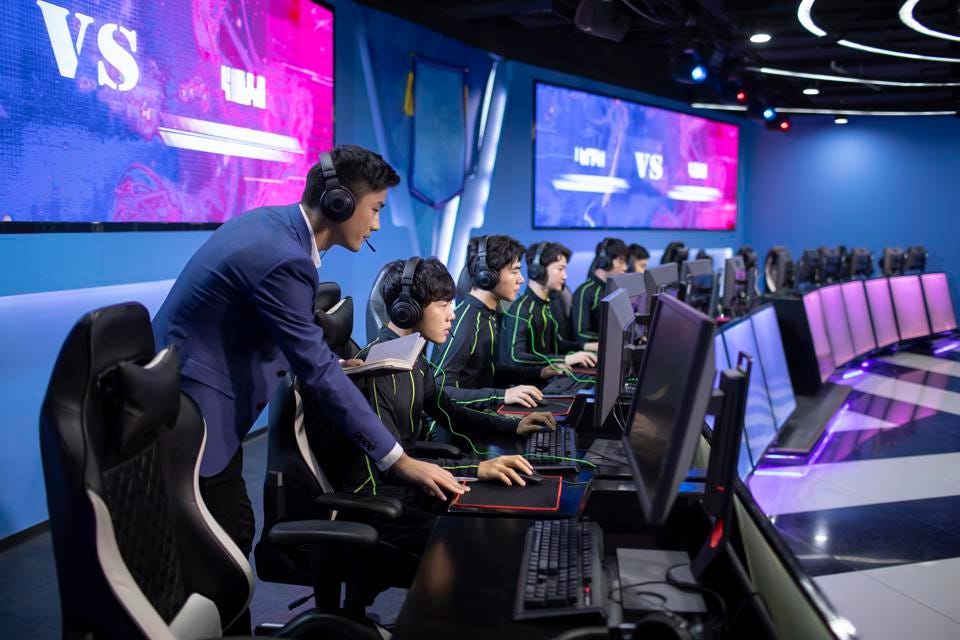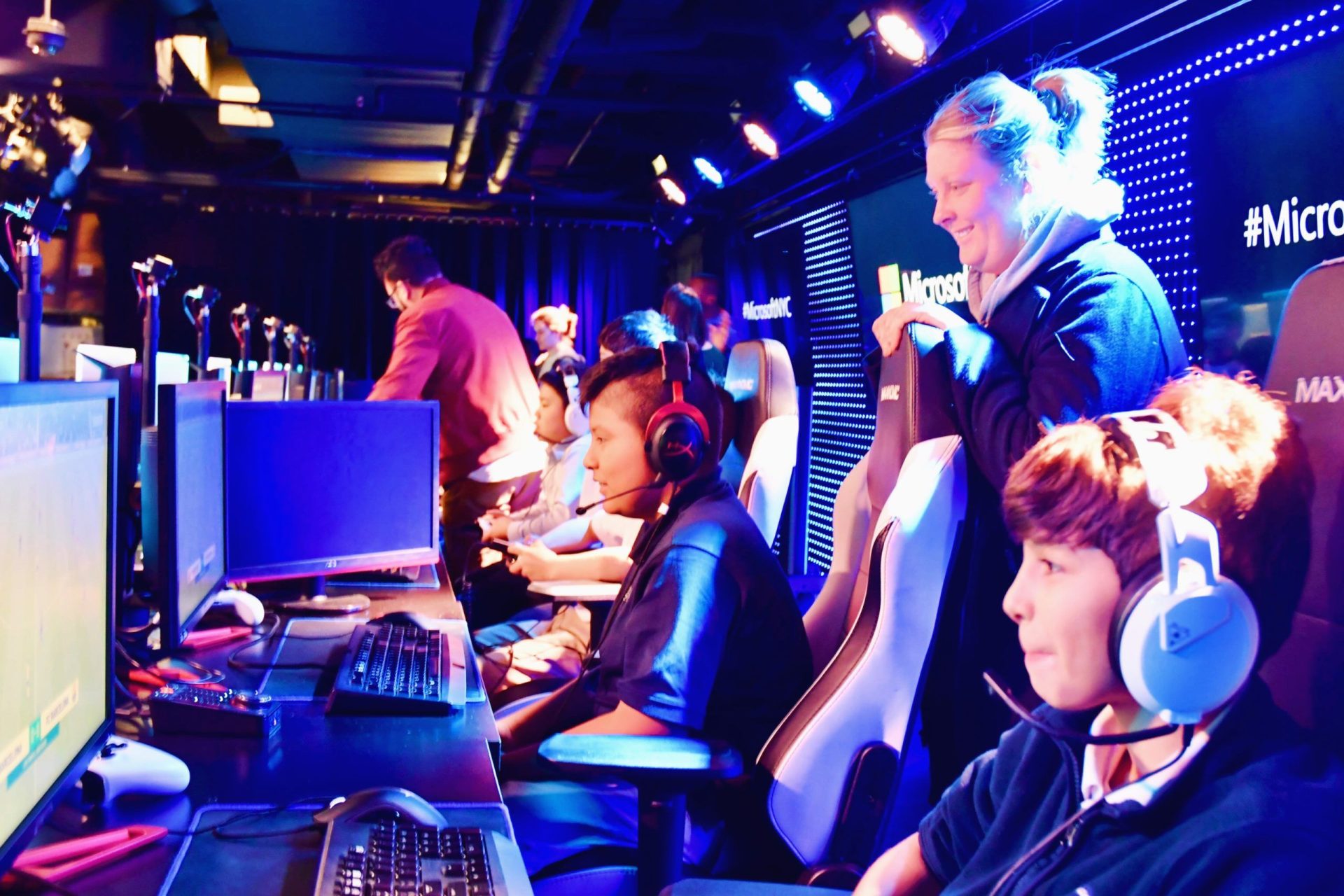October 5, 2023
The esports industry is still in its fledgling stages, at least in the United States, and it is seeing a lot of growth in certain areas. Middle and high schools have begun implementing competitive esports programs, universities are offering esports scholarships, and some universities even now have academic programs to teach students about the esports industry. Still, many of these programs are disorganized and in foundational stages; much work is to be done in the space.

Source: Forbes
The esports industry will only be successful in the long run if it becomes more sustainable. This means that together, we must build a pipeline in which future esports players or professionals can dip their toes in the water at a younger age. Unfortunately, many esports professionals were not introduced to the industry at the start of their career, but found their way into esports through an indirect path. This is because esports is hardly present in schools, and when it is, it is typically only in the competitive capacity. As a result, gamers are generally not exposed to organized esports until at least high school, and potentially not until college or after.
There is a need within our communities to build an esports program in a way that will last. It is important to begin developing esports players and professionals at a young age to ensure that the industry continues to grow and improve. Here are some tips for building sustainable competitive and academic programs.
Competitive Programs
Competitive programs are much more established in the esports space than are academic programs. Still, there is much work to be done to ensure that our competitive programs are sustainable and lasting.
Tip #1: Ensure that your community gives esports access to players at a young age.

Source: Kids in the Game
This is potentially the most important part of building a sustainable esports program. Most communities allow students to join competitive gaming programs in their school in high school at the earliest. Our community organizations, middle schools, and even elementary schools must foster development in esports and allow for participation for younger gamers.
Tip #2: Make sure that your stakeholders are actually invested
Many esports programs are created out of necessity, and an organization’s staff members are frequently sthrust into a sponsorship role that they are not interested in. This often causes programs to fade out when students lose interest. Similarly, some communities have one person that strongly leads the charge in the beginning an esports program, and the excitement fades out when they leave, and there is no one else to take over. Therefore, it is important that your program has multiple organizers that are invested in the the concept, and that these people spread their excitement to others. Only one individual cannot sustain programs, nor can they be maintained by organizers who do not show a genuine interest in esports.
Tip #3: Invest in coaching and development
A lot of schools make the mistake of making a single teacher be in charge of coaching all of their esports offerings. This is an issue not only because the individual often does not have experience in all or any of the games being played, but also because this is akin to having one individual coach multiple sports. A coach or sponsor who is stretched too thin will not be able to give their players the coaching and development that they need to excel in the various titles. If you are going to start a competitive program, make sure that it is, indeed, competitive. This will ensure the program’s sustainability, and players will be more invested the more they are learning and improving.
Academic Programs
Programs that teach esports studies in colleges and high schools are much newer than most of the competitive programs. Only a few universities offer certificate or minor programs, and fewer offer degree programs. While this is more of a large-scale issue, if you are part of an educational community in a high school or university, there are some things that you can do to get the ball rolling in starting an academic esports program.
Tip #1 Ensure that your campus has a competitive team
The first step of bringing an esports curriculum to your high school or university is to make sure your campus hosts at least one competitive team. This will give you leverage when proposing your academic program and provide opportunities for practical application where your esports students can get hands-on learning experiences.
Tip #2 Start an academic esports club
Most universities that have not started an academic esports program find it difficult to start. So instead of jumping into the deep end, begin sponsoring esports board or club. This will serve to get students excited about esports and help facilitate the desire for an academic curriculum.
Tip #3 Work on integrating esports studies into your traditional sports programs
While most high schools and universities do not have academic esports programs, many do have sports management or sports administration programs. Though you should not wholly alter these programs to include esports, you may be able to form an esports class quickly or incorporate esports management lessons into your traditional sports management classes.
Tip #4 Use the resources that already exist
The final tip is to take advantage of any resources that already exist in relation to scholastic esports curriculums. The North American Scholastic Esports Federation has many free resources for schools on their wesbite. There are personnel resources within this organization that you can reach out to. Additionally,the Esports Development and Growth Enterprise (EDGE) Consulting Firm has partnered with many different organizations and schools to create esports curriculums for various academic programs, including schools and other organizations. There are several universities with established academic esports programs, and it may also be beneficial to reach out to individuals within these organizations for advice.
Esports programs require special care to ensure sustainability at the end of the day. You can do many things to make sure yours starts off successfully and continues for years to come. The tips in this article are just the beginning. Esports programs require passion and care and many variables that go into creating them. If you care about the program you design and invest in help from those with more expertise, you will be sure to create a program that lasts.